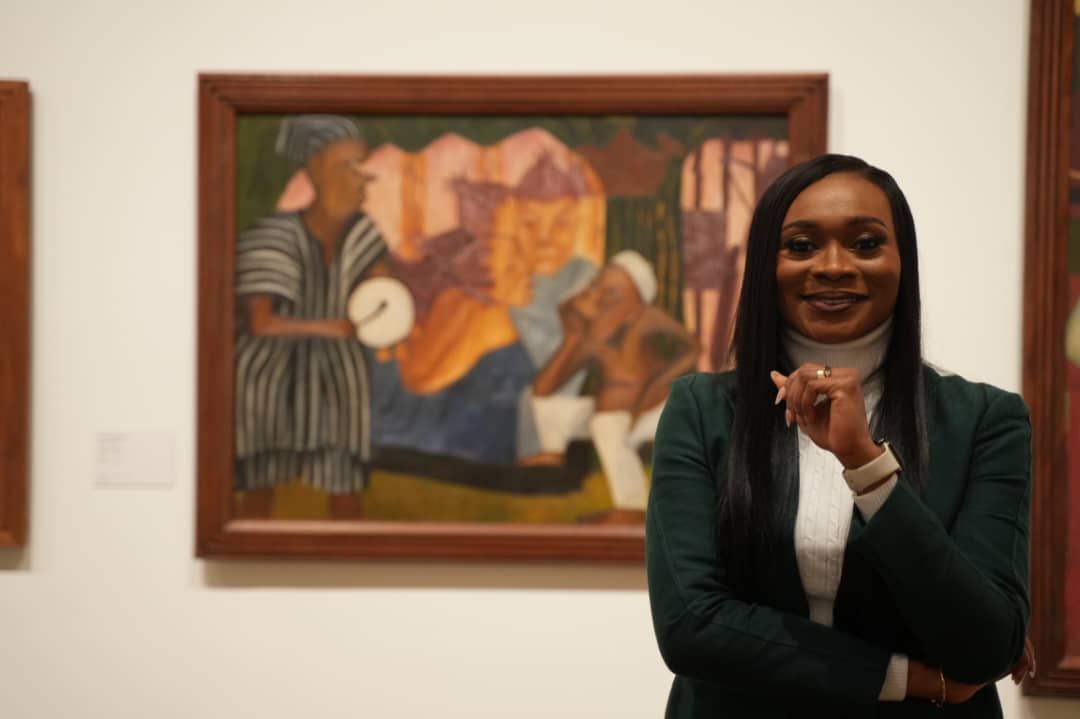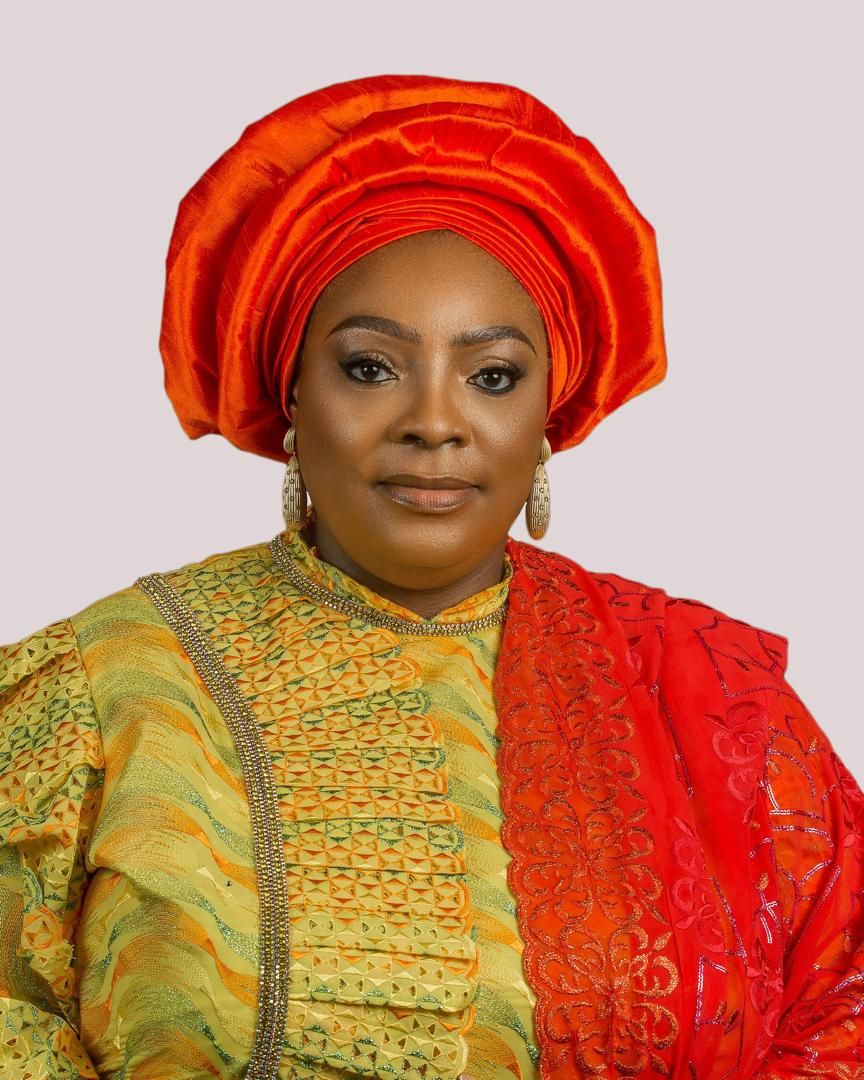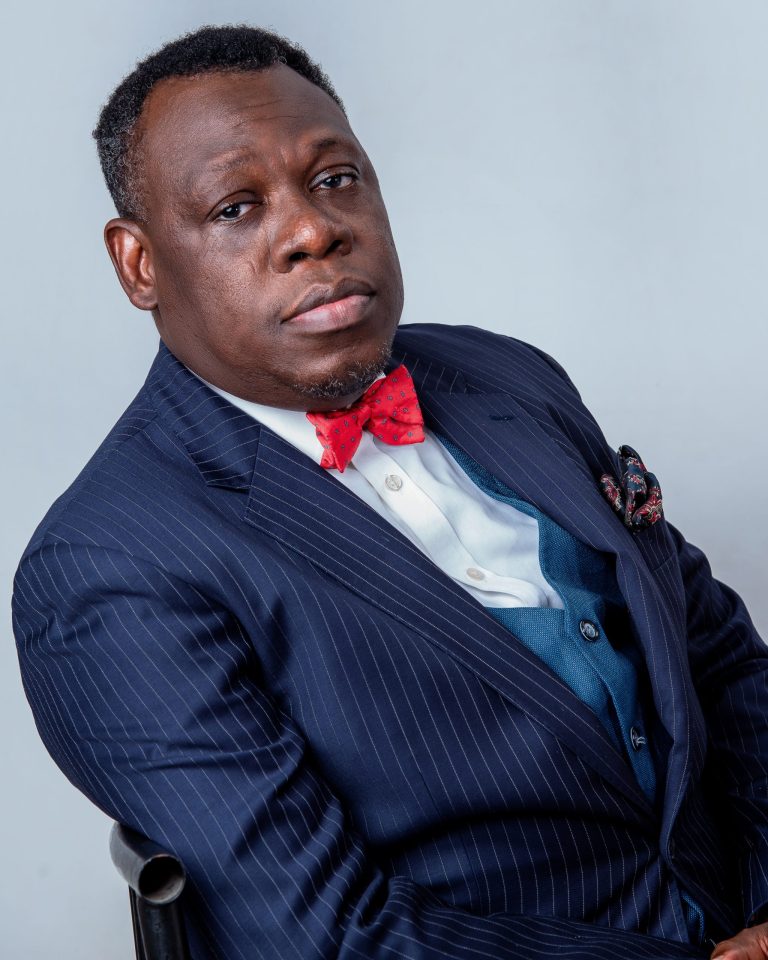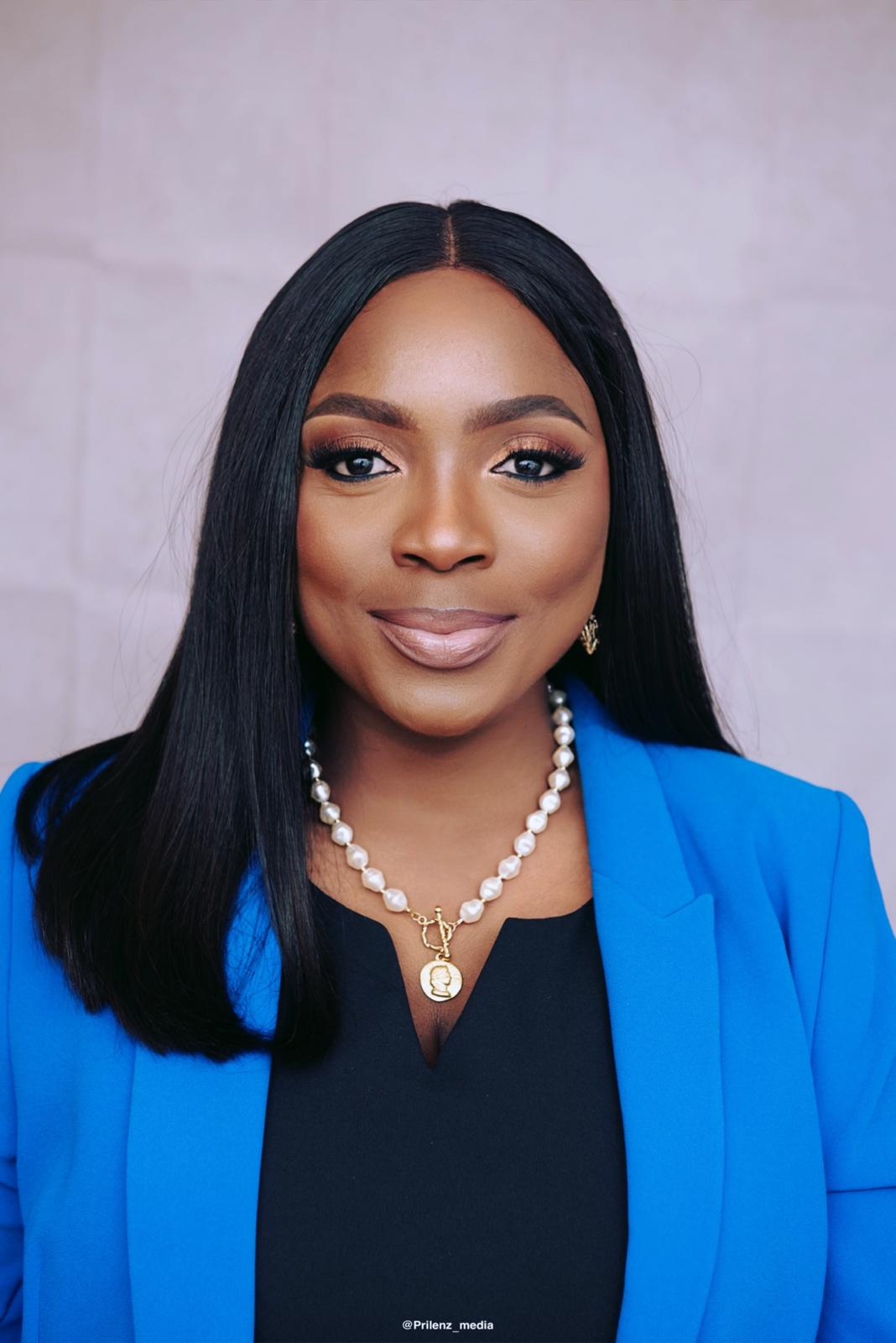Nigerian Creativity Treated As Footnote In World Art History For Too Long —Ngozi Akinyele

In this exclusive chat, NGOZI AKINYELE, Chief Marketing and Communications Officer at Coronation Group, reflects on the Nigerian Modernism exhibition at Tate Modern and Coronation’s commitment to celebrating Africa’s artistic legacy.
She shares insights on cultural restoration, identity, and how the partnership between art and enterprise can redefine Africa’s narrative on the global stage

Standing there at Tate Modern, what were you feeling when you saw Nigerian Modernism unveiled for the first time?
For me personally, it was overwhelming in the best possible way. To see the rich and diverse works of Nigerian modernists —from paintings to sculpture, textile and even poetry— placed at the heart of global modernism filled me with pride, but also with a deep sense of responsibility. These weren’t just artworks on the wall; they were a visual biography of our great nation. For too long, Nigerian creativity has been treated as a footnote in world art history. That day felt like restoration —cultural restoration in real time.
And we made history! The opening of Nigerian Modernism was the largest exhibition opening in Tate Modern’s 25-year history. That fact alone tells you the scale of what this moment represents. We are witnessing a renaissance — across art, film, fashion, and culture more broadly. Africa is rising.
You spoke about “cultural restoration in real time.” What does that phrase mean to you personally, as a Nigerian and as the Chief Marketing & Communications Officer for Coronation Group?
For me, “cultural restoration in real time” is about actively reclaiming and rewriting narratives that were diminished or overlooked. As a Nigerian, it’s deeply personal: despite the erasures of colonialism, our culture endured, adapted, and triumphed. As Chief Marketing and Communications Officer at Coronation, it reflects our conviction that cultural capital is inseparable from financial and knowledge capital – like our Founder and Chairman, Aigboje Aig-Imoukhuede, CFR, often says.
Sustainable prosperity isn’t only about financial solutions; it is also about the beautiful stories we tell ourselves and the values we pass on to future generations.
Can you share a moment from the exhibition —a particular work, artist, or personal exchange— that deeply resonated with you?
Yes, one moment will probably stay with me forever. We ensured that among the first groups to experience the exhibition were schoolchildren of Nigerian and African backgrounds here in the UK. To spark a conversation at the start of the tour, I said to Joy Idowu – a curious young student: “So you’re Nigerian?” She replied, “My parents are Nigerian.” I let it rest, deciding to allow the rooms to do the talking.
After almost two hours of immersion — listening to her peers reflect on the brilliance of the 300+ artworks, and seeing for herself the mastery on display — something remarkable happened. At the end, my colleague asked her name. She replied, “My name is Joy Idowu, I’m Nigerian.” That subtle shift was profound. It was the story of identity restored in real time, and for me, the most powerful confirmation of why we are doing this.
Coronation’s Art Strategy links cultural investment to sustainable prosperity. How do you see this partnership with Tate contribute towards turning that vision into reality?
This partnership demonstrates that prosperity is not only measured in financial terms but also in cultural terms. By partnering for Nigerian Modernism, Coronation is showcasing Africa’s cultural wealth alongside its economic potential. It creates a bridge: on one side, our stakeholders see us as custodians of wealth; on the other, as custodians of heritage. Together, it strengthens trust and inspires confidence that prosperity is sustainable when rooted in identity and pride.
How does Coronation’s involvement in the repatriation of the Benin Bronzes and its Galleries relate to this exhibition in London (if at all)?
They are part of the same continuum. Nigerian Modernism shines a light on Nigeria’s 20th-century creativity, while the Benin Bronzes represent centuries of craftsmanship that preceded it. Coronation is working with the National Commission for Museums and Monuments to establish the Coronation Art Gallery in Benin, a permanent home for the Bronzes once they are repatriated. Alongside this, the Coronation Art Gallery in Lagos cultivates broad access to African art through modern and contemporary exhibitions. Together, these initiatives mean that what you see in London is not an isolated moment but part of a wider cultural ecosystem that Coronation is helping to build, both globally and locally.
You’ve previously said that “our culture is our advantage.” How does cultural capital strengthen Coronation’s brand story and stakeholder relationships across Africa and worldwide?
Culture is our soft power. It shapes perception, and perception drives trust. When Coronation aligns itself with cultural capital, we are not only projecting African creativity to the world, we are also affirming our values — craftsmanship, identity, legacy.
For stakeholders across Africa and beyond, this deepens our brand story. It says: we are more than financiers; we are prosperity partners invested in the enduring wealth of our people and our heritage.
In broader terms, positive narratives about our nation also influence economic perception — cultural capital strengthens confidence, which feeds into credit ratings, and, ultimately, contributes to lowering the cost of capital for Africa.
This exhibition also serves as a global storytelling platform. How do you manage the balance between the corporate sponsorship message and authentic cultural preservation?
I prefer the words corporate partnership. As partners, our role is to support, not overshadow. We don’t seek to brand the art; rather, we enable it to be seen. The narrative must remain people and purpose-first. At the same time, our presence signals that African institutions are stepping up to invest in their own stories. It’s a fine line, but when you approach it with respect and integrity, the partnership amplifies rather than compromises authenticity.
The exhibition brings Nigeria’s story to millions of visitors from around the world. What impact do you hope it will have on young Africans (in the diaspora) who see it for the first time?
I hope it will do for many young Africans what it did for Joy Idowu. At the start of the exhibition, she saw herself only through the lens of her parents’ nationality. By the end, she claimed her Nigerian identity with pride. That transformation is what I want every young African to experience — that art is not distant or abstract, but alive, affirming, and theirs.
And the truth is, there are many “Joys” living not only in the diaspora but also on the continent — young people who, for diverse reasons, have not yet embraced their roots. My hope is that exhibitions like Nigerian Modernism give them reasons to look again, and to take pride in who they are.
Coronation Group has often spoken of “democratising art.” What does that look like in practice for your stakeholders (employees, clients, and communities)?
For us, democratising art means making it accessible in ways that transform how people see themselves. It’s why we opened the doors of Nigerian Modernism to schoolchildren early, so that Joy and other young bright minds, could encounter their heritage in a setting of dignity and excellence.
It also means extending access beyond physical spaces — digitising exhibitions so that students in Nigeria or Ghana can explore them virtually; curating programmes in our Lagos gallery that open up modern and contemporary works to employees, clients, and communities; and, through our work in Benin, creating a permanent home for the repatriated Bronzes in partnership with the NCMM, ensuring heritage masterpieces belong to the people once again.

I was delighted to see revered artists like Baba Bruce Onobrakpeya, Chief Jimoh Braimoh, Chief Muraina Oyelami, and Mama Nike Davies-Okundaye gracing the exhibition. I remember Mama Nike, in particular, commented on my Asooke pant suit, saying it reflected how the younger generation is elevating our local fabrics with elegance and self-confidence. It added some expensive weight to my luggage, but it was worth it!
Just as today’s audiences can meet the extraordinary Ndidi Dike or Gerald Chukwuma, democratisation also means ensuring the high artistry of Ben Enwonwu, Demas Nwoko, Aina Onabolu, Yusuf Grillo, and so many others is accessible to a broader public.
What conversations do you hope this exhibition will spark in Nigeria once the story travels home again?
I hope it will spark pride, curiosity, and debate. Pride in knowing our artists helped shape global modernism. Curiosity to learn more about our cultural history. And debate about how we safeguard our heritage going forward — because preservation is not just a curatorial responsibility, it’s a national one.
And importantly, I hope it reaches the “Joys” who live right at home — those who have grown distant from their heritage or take it for granted. This exhibition is a reminder that our culture is not only our past, but also our future. If in London we witnessed the Joy-effect, then my hope is to see it carried into Lagos — young Nigerians rediscovering their heritage with confidence and pride.
Beyond access, how did the exhibition itself reflect inclusion in the choice of artists and voices represented?
One of the strengths of Nigerian Modernism was its deliberate inclusivity in how artists were represented. The curators – Osei Bonsu and Bilal Akkouche were intentional about bringing together those who had received formal training — often through art societies and higher institutions — alongside those who were self-taught, natural talents whose work was born of instinct and inborn creativity. That decision ensures the narrative of Nigerian Modernism is not confined to academia, but embraces the full breadth of our creative genius.
Another area of inclusion that struck me was gender. I could tell there was a genuine effort to ensure female artists were not left out, which is significant given how male-dominated the art world often is. My favourite room in the exhibition was the one dedicated to Ladi Kwali — the celebrated potter whose face graces Nigeria’s twenty-naira note. Beyond the symbolism, her work reminds us that women have always been central to Nigerian creativity, even if history sometimes under-acknowledged them. That said, there is still more to be done to ensure female artists blossom in our own time. For Coronation, that principle of balance is central — in art, in business, and in society at large.
How do you believe Aigboje Aig-Imoukhuede’s personal patronage — both as Chairman of Coronation Group and a member of Tate’s International Council — has advanced the democratisation of access to art through this exhibition?
His role has been catalytic. As Chairman of Coronation and a member of Tate’s International Council, he embodies the bridge between private patronage and institutional collaboration. His conviction that a nation’s true wealth lies in financial, knowledge, and cultural capital has shaped Coronation’s art strategy. Without that vision, we would not have conceived of backing this landmark exhibition. His patronage turns personal passion into public good.
And perhaps nothing confirms the magnitude of this moment more than the words of Baba Bruce Onobrakpeya, who described Nigerian Modernism as “one of the best things that has ever happened to Nigerian art.” When a master whose career embodies resilience and reinvention speaks in those terms, you know you are standing at a turning point in history.
What does this moment, expressed through art, say about how Africa is reframing its narrative on the world stage, and why is this important in today’s digital age?
It signals a shift from being spoken about to speaking for ourselves. In the digital age, narratives travel faster than ever, but they also compete fiercely. By anchoring our story in authenticity and artistry, we are reframing Africa not as a footnote but as a fountain of ideas, creativity, and identity.
That is why this moment is so important: because there are many “Joys” across Africa and the diaspora — young people searching for identity in a noisy world. When they see Nigerian Modernism presented with dignity at Tate, it tells them: your story matters, your heritage is powerful, and your identity is an advantage. That reframing is what strengthens both our cultural confidence and our global influence.
And lastly, if you could summarise your experience of the official opening of Nigerian Modernism in one word, what would it be?
History. Because in that moment we traced our past, we made history in the present, and we gestured toward a future where more Africans author new chapters — carrying our story forward with deserved pride.














